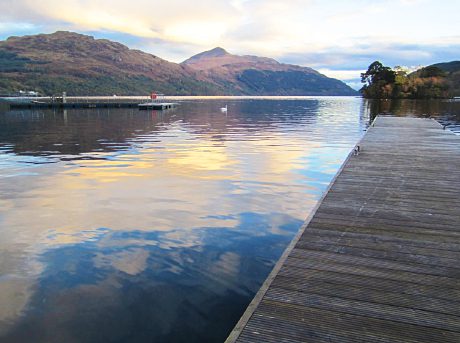Connections for larger communities planned

SCOTLAND’S water company and its environment watchdog are asking the public to help them prepare for the challenges of the future.
The Scottish Environment Protection Agency (SEPA) has set out new plans for how government and industry can work together to protect and improve the country’s water environment. At the same time Scottish Water is looking for input on how to continue to provide drinking water, protect the environment and support the economy between until 2040.
A Scottish Government consultation has been launched asking for feedback on SEPA’s plans. The draft document covers issues having an effect on Scotland’s water environment, including flood risk management and improving the condition of rivers and lochs, estuaries and coasts. It includes proposals on how the agencies responsible for protecting and improving the water environment and the industries that rely on it can work together.
Chairman David Sigsworth said: “Around a quarter of Scotland’s rivers, lochs and burns are affected by physical changes such as culverting, engineered banks and shores, fish barriers and straightened channels. These changes have important impacts on erosion, sediment build up, the flow of water and wildlife. They can act as barriers to migratory fish, and contribute to flooding.”
The agency said the conditions of those waters could bring a range of improvements, from better human health and the environment to reducing flood risk.
“One solution really does not fit all, and we need to take the circumstances of each water course into consideration before we start planning any remediation,” said Sigsworth. “Actions will be developed in partnership, stakeholder input will be valuable, and it will be important to take a proportionate approach which balances the costs and benefits of improving the water environment.”
Meanwhile, deputy first minister Nicola Sturgeon has encouraged the public to take part in the Scottish Water consultation. “Our vision of Scotland as a hydro nation will play a key part in our plans to develop a low carbon economy, boost growth and create jobs. How we manage this rich natural resource is incredibly important and we’d urge everyone to have their say in Scottish Water’s consultation.”
The document identifies a number of challenges and opportunities that the company could face over the next 25 years, including climate change, population change and developments in science and technology.
Douglas Millican, interim chief executive, described the organisation as a success story having lowered operating costs over the past 10 years. “But we are not complacent and, through this major consultation, we want to hear whether customers think we have identified the right priorities to build on our successes in the years ahead.”
Included in the proposals are plans to develop water connections between supply systems for larger communities.
Both consultations will end in February.







